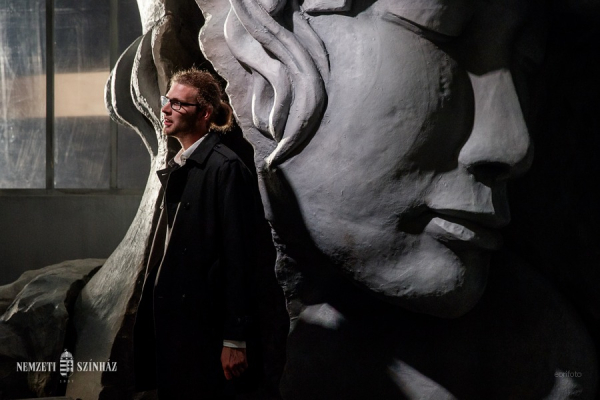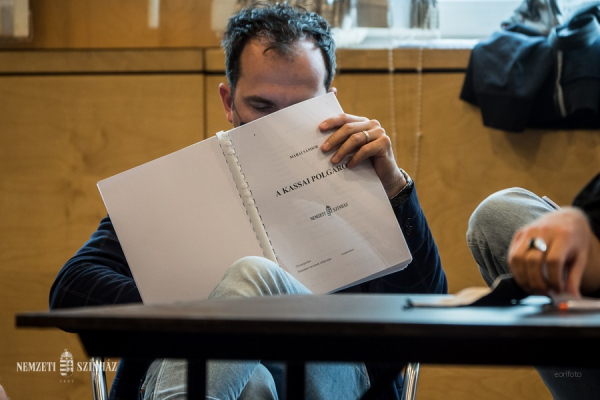
CITIZENS OF KASSA
Márai’s play takes the spectator back to 14th century Kassa (Košice). Make no mistake, this past is but a token of universal time. The town of Kassa was a symbol of diversity back then, and has remained one to this very day. Building churches, on the other hand, has been a symbol of faith and art. Since the dawn of time, armies of anonymous sculptors have worked on artefacts we marvel at even today on the tympana of cathedrals. And the same ecstatic figures carved in stone look at us from on high like caryatids when we enter the church. Who actually pays any attention to them?
The story is about stone-mason/sculptor Master János’ fate, in which his muse Genovéva plays a major role. Who is this fifteen-year-old girl who starts out as the master’s adopted daughter, to stand on a pedestal as the source of his inspiration? Is she an angel or a demon, or both at the same time? Without her, creative power dies, the creative spirit wilts, and stone objects become ornaments, rather than sculptures. And an artist will be lost, if the sculptor is forced to part with his adored daughter.
Meanwhile, the town is under attack. Sold by the king, Kassa dreads the palatine’s troops. It is one’s duty to oppose occupying forces. But Master János procrastinates: is this really his job? His destiny is different. It is to finish the statue of Mary, modelled on Genovéva the muse who, for him, represents both heaven and hell.
He eventually chooses to fight. Master János leads Kassa’s defenders, and the palatine dies by his sculpting chisel.
What becomes of us, if our inner artistic drive is destroyed, and all we can do is continue to suffer in the shadow of our guilt? Who are the assaulters of all time to seal our fate in this way? And who, indeed, are we when we become defenders of our own community?
The answer is in the question itself: we are all citizens of Kassa.


